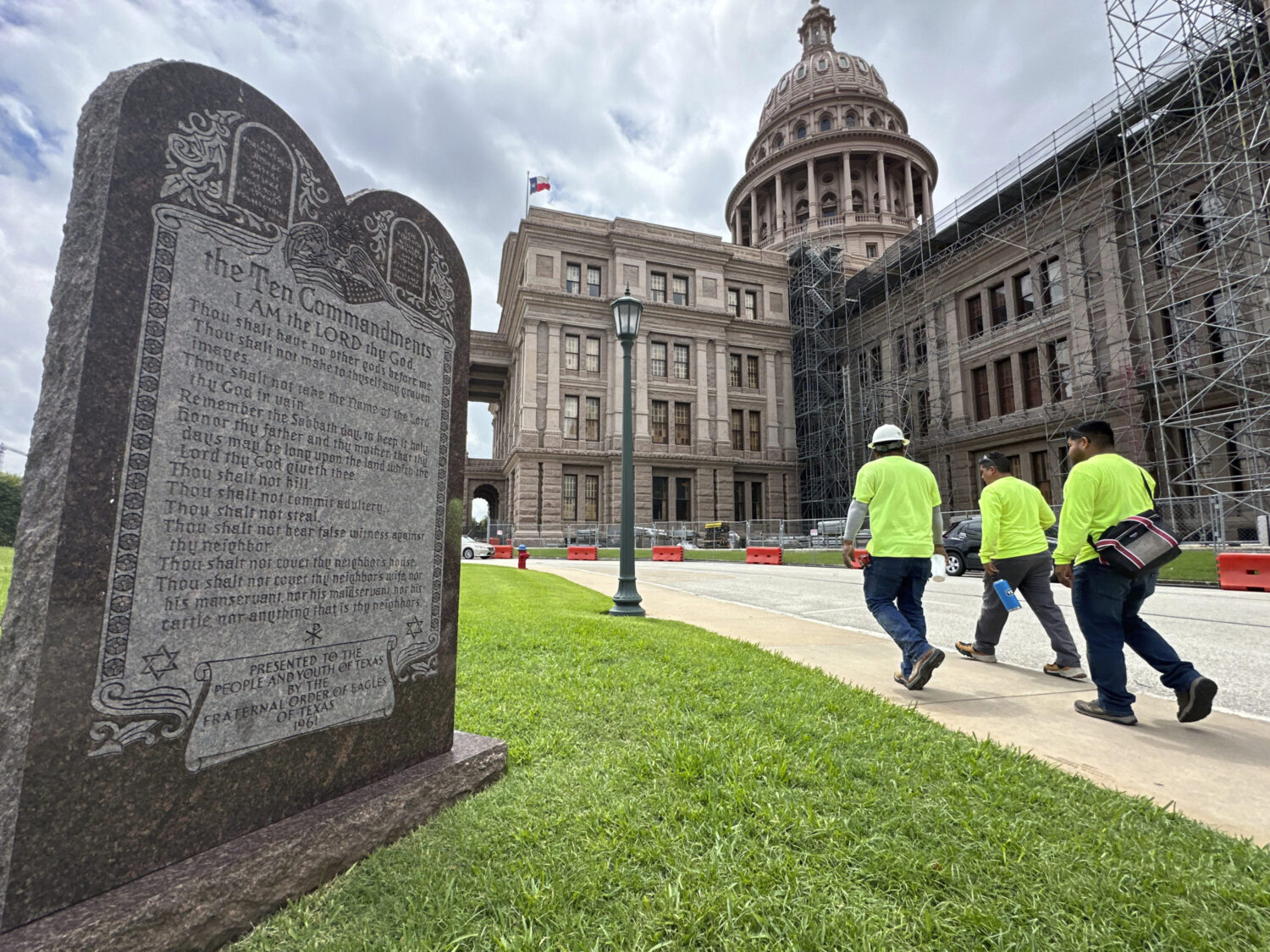Introduction to the Controversy
A new bill in Texas, known as Senate Bill 10, has sparked controversy as it requires every public-school classroom in the state to display a poster of the Ten Commandments. This move is poised to be signed into law by Governor Greg Abbott, but it faces significant opposition from civil liberties organizations. A coalition consisting of the American Civil Liberties Union (ACLU), the ACLU of Texas, the Americans United for Separation of Church and State, and the Freedom from Religion Foundation plans to file a lawsuit to prevent the implementation of this bill.
Background on the Bill and Its Opposition
The coalition’s decision to sue is based on the belief that Senate Bill 10 violates two key aspects of the First Amendment to the U.S. Constitution. Firstly, it is argued that the bill infringes upon the Free Exercise Clause, which guarantees the freedom to hold religious beliefs without gobierno interference. By displaying the Ten Commandments in public-school classrooms, the government is essentially imposing a religious message on students who are legally required to be in school, thereby intruding on parents’ rights to choose how to bring up their children in religious education.
Legal Grounds for the Challenge
The second ground for challenging the bill is its violation of the Establishment Clause, which prohibits the government from making any law respecting the establishment of a state-sponsored religion. The text of Senate Bill 10 specifies the exact text of the Ten Commandments to be displayed, which is a translation from the King James Bible depicted on a monument outside the Texas State Capitol. This, according to the ACLU, represents the Legislature picking and choosing which religious doctrines and translations are correct, favoring them under the law, which is unconstitutional.
Historical Context and Precedents
The use of the King James Bible translation was chosen by the bill’s sponsor, State Rep. Candy Noble, in an attempt to reduce legal challenges, as this specific monument had previously been approved by the U.S. Supreme Court in the 2005 decision, Van Orden v. Perry. However, Democratic representatives argued that the display of the Ten Commandments in a classroom setting is significantly different from its display in a public area like the Capitol, especially considering the compulsory nature of school attendance. They also pointed out that using an explicitly Protestant version of the Ten Commandments could be seen as discriminatory against students of other faiths, such as Judaism and Catholicism, which use different translations.
Supreme Court Rulings and Their Implications
A 1980 Supreme Court ruling, Stone v. Graham, had previously prohibited the display of the Ten Commandments in public-school classrooms, citing a violation of the Establishment Clause. Despite a 2022 Supreme Court ruling, Kennedy v. Bremerton School District, which some argue overturned the precedent set by Stone, the ACLU contends that the core concern about religious indoctrination in schools remains valid. The Supreme Court has consistently shown concern over the potential for religious indoctrination in schools, where students are a captive audience under the control of school officials.
Plans for the Lawsuit
The coalition plans to mount its lawsuit on behalf of Texas public-school families who are concerned about the implications of Senate Bill 10. They encourage families who oppose the bill to come forward and contact their organizations. This lawsuit aims to protect the rights of students and their families to freedom from religious indoctrination in public schools, ensuring that the Establishment Clause of the First Amendment is upheld.
Conclusion
The controversy surrounding Senate Bill 10 in Texas highlights the ongoing debate about the separation of church and state, particularly in the context of public education. As the bill’s implementation looms, the planned lawsuit by civil liberties organizations seeks to ensure that the religious freedoms of all students are protected, and that public schools remain a place where students of all backgrounds can learn without being subjected to religious indoctrination. The outcome of this legal challenge will have significant implications for the interpretation of the First Amendment and the role of religion in public schools, not just in Texas, but potentially across the United States.




